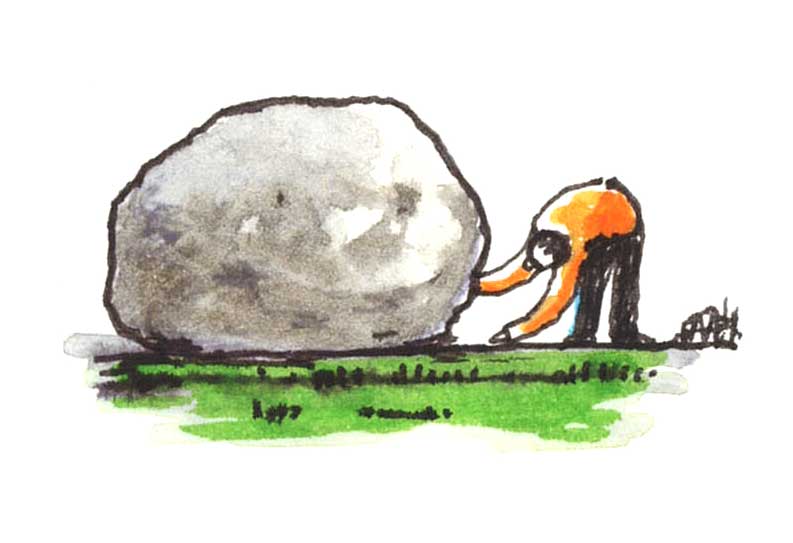About This Guest Post
Today’s guest post features another contribution from a member of the IWMW 2017 advisory group. In this post Kevin Mears looks for answers to the question “What Do We Talk About When We Talk About Websites?“.
What We Talk About When We Talk About Websites
Lifting the Stone
One of the strengths of IWMW events for me has been the community of people where you can have an honest discussion about the problems that we face producing websites for our various institutions. Everyone is happy to talk about things that went well, but it can be difficult to talk in the open about frustrations you may have at your organisation or even in your career, but the beauty of IWMW is that it’s likely you’ll find someone who is willing to listen and understands.
In this atmosphere, it’s possible to lift the stone and look underneath. If we do it together then we can share what we find and perhaps not feel so bad about that neglected corner of the website that is a horror show of misapplied branding, poorly written content and dodgy information architecture. When exposing these things together we can more fully explain the context, and the story of how they got this way. The broken down communications. The crazy purchasing decisions. The political turf wars. Explaining how things got this way is the cathartic first step to making them better.
At last year’s IWMW event, lots of the people I spoke to were in various stages of being reviewed or restructured. Some were starting the process with all the uncertainty ahead of them, others had just emerged with varying degrees of optimism about what had been decided. Coming to IWMW is an opportunity to get perspective from people who can relate.
These opportunities for discussion and debate are the essential complement to the talks, workshop sessions and master classes. The time when you realise that you’re not the only team with these problems and amazingly the team that has managed to fix their version of that problem are happy to tell you how they did it.
Starting Points
If the discussions are a unique part of IWMW then they can only happen as they do because of the stimulus provided by the speakers and facilitators. It’s a real strength of the workshop that a mix of external consultants, suppliers and peers come provide that. Sometimes soothingly in tune with ‘sector thinking’, sometimes refreshingly iconoclastic, the ‘content’ provides a much-needed focus, to prevent the event descending into a lament of everything bad.
The theme for this year’s conference is ‘It’s the end of the institution as we know it and I feel fine’. It does seem that that the unique pressures of this year are creating more uncertainty than ever before for the whole sector, but perhaps because the problems seem so large I wonder if there is a certain comfort to be found in thinking tactically. The need to craft great user experiences seems more pressing now than ever, so I’m eagerly looking forward to hearing the nitty gritty on how my peers are getting things done. Some examples of the things we need for great websites are:
- make it responsive
- make it fast
- make it clear
- make it engaging
- make it accessible
- make it extendable
- make it relevant
Within each of these tasks are a multitude of challenges and approaches and there have been some recent interesting design discussion on the new HE-Digital Slack community recently where people have been brave enough to put work up for debate and discussion. There’s been useful feedback on the design choices people have made as well as wider discussion about general approaches to subjects like devops, governance, management, and front-end dev.
If you’re like me you have a huge list of things that you’d like to improve about your organisation’s online presence and sharing some of those things with a community of like-minded and committed people might help to get them marked as done.
Biography
 Kevin Mears, Senior Designer, University of South Wales, works as a part of a cross departmental team producing websites for a wide variety of stakeholders. He is especially interested in style guides, workflows and standards that drive better products. Kevin would be very happy to talk to anyone thinking of presenting how they work, especially new voices to this community.
Kevin Mears, Senior Designer, University of South Wales, works as a part of a cross departmental team producing websites for a wide variety of stakeholders. He is especially interested in style guides, workflows and standards that drive better products. Kevin would be very happy to talk to anyone thinking of presenting how they work, especially new voices to this community.
- Email: kevin.mears@southwales.ac.uk
- LinkedIn: kevin-mears-6ab21519


